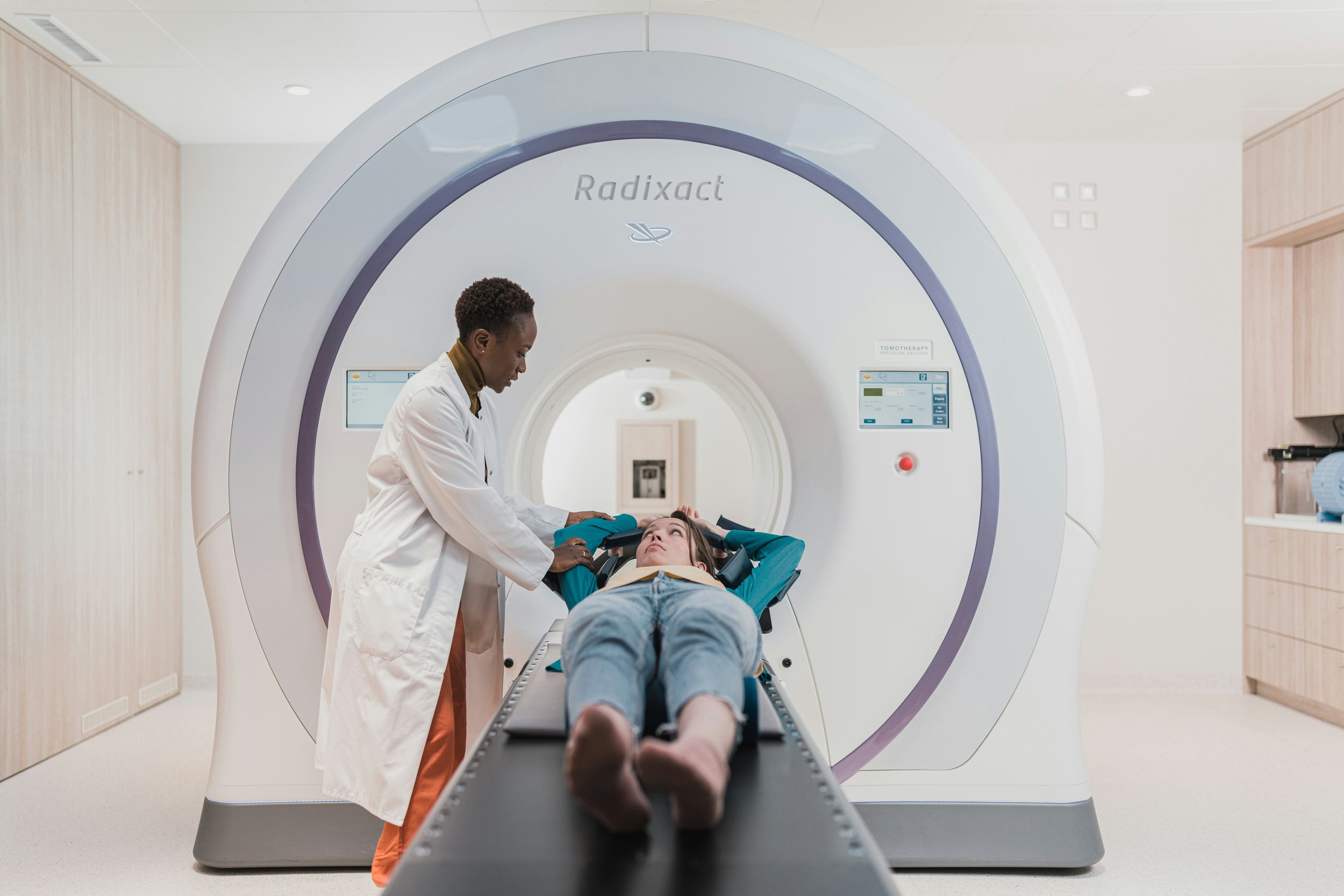Birth Injury Compensation Claims
Standing by Your Side When It Matters Most
When something goes wrong during pregnancy or childbirth, the effects can be devastating. If your baby has been injured and you believe mistakes were made in their care, you may feel overwhelmed, confused, and unsure of what to do next. You're not alone.
At Nash & Co Solicitors, we help families find answers. Our medical negligence team specialises in supporting parents through the legal process when birth injuries are caused by errors during maternity care. We understand how emotional and frightening this situation can be, and we are here to help you take the first step with honesty, care, and expertise.
arrow_back Back to Medical Negligence
Understanding birth injuries
Birth injuries happen when a baby is harmed during pregnancy, labour, or shortly after delivery. While many are minor and heal quickly, others have lifelong consequences. Some conditions may not be diagnosed until months or even years later.
Serious birth injuries can include:
Brain injuries caused by a lack of oxygen
Cerebral palsy
Erb’s palsy and shoulder dystocia
Skull fractures or bleeding on the brain
Injuries caused by incorrect use of forceps or ventouse
Infections or untreated jaundice that result in damage
In many cases, these outcomes could not have been avoided. But when mistakes are made by medical staff and those mistakes lead to harm, it may be classed as medical negligence.
Cerebral Palsy and Birth Injury
Cerebral palsy is one of the most common and serious conditions linked to mistakes made during childbirth. It affects movement and coordination and is usually caused by damage to a baby’s brain either before, during, or just after birth.
Not every case of cerebral palsy is caused by negligence. However, some are the result of delays in recognising that a baby is in distress, poor handling of a delivery, or a failure to act quickly when complications arise.
If your child has been diagnosed with cerebral palsy, and you believe something went wrong in the care you received, it is important to speak to a solicitor who understands the complexities of these cases. We can help you explore what happened and whether you might have a legal claim.
call Call us on 01752 827085 for a chat and to arrange your free consultation
When is a birth injury classed as medical negligence?
You may have a claim for medical negligence if your baby’s injury could have been avoided with the right care. Some examples include:
A delay in carrying out an emergency caesarean
Failure to monitor the baby’s heartbeat correctly
Delays in recognising or acting on signs of distress
Poor communication between medical staff
Incorrect use of equipment during delivery
Inadequate response to infection, bleeding, or other complications
Every situation is different. That’s why we take the time to understand exactly what happened in your case and work with independent medical experts to assess whether the care you received fell short of the standards expected.
Making a birth injury compensation claim
We understand that making a claim is not about blame. For many parents, it is about finding answers, protecting their child’s future, and helping to ensure that other families do not go through the same experience.
If you choose to make a claim, we will:
Start with a free, confidential conversation with one of our experienced lawyers
Request and review your medical records in detail
Instruct independent medical experts to give their opinions
Build a clear picture of what happened and why
Keep you informed and supported at every stage
Claims involving birth injuries are often complex, especially when they involve long-term conditions like cerebral palsy. We will guide you through the process with care and clarity.
Most of the claims we take on are funded by a no win, no fee agreement, which means there is no financial risk to you.
How much compensation can we claim?
Compensation in birth injury claims can help to provide the care, support, and financial security your child needs. This can include:
Ongoing medical treatment and therapies
Specialist equipment or home adaptations
Educational support and care services
Loss of future earnings
Travel and accommodation expenses
Compensation for pain, suffering, and impact on quality of life
In the most serious cases, where a child has been left with a lifelong disability such as cerebral palsy, the amount of compensation can be significant. Our priority is always to make sure any settlement reflects your child’s needs now and in the future.
Why choose Nash & Co Solicitors?
Our medical negligence team has helped many families affected by birth injuries. We bring together legal expertise with a sensitive and personal approach. We know this is not just about legal process — it is about your child, your family, and your future.
Here’s what you can expect from us:
A genuinely supportive and understanding team
A clear explanation of your options and what’s involved
Complete transparency about costs, timeframes, and possible outcomes
A dedicated solicitor who will be with you every step of the way
We take real pride in the service we offer and the trust our clients place in us. You do not need to face this alone. We are here to help.
How much will this cost?
Our team of specialist lawyers work on a No Win, No Fee basis. This means that there’s absolutely no financial risk to you or your family. We won’t ask you to make any upfront costs and you won’t have to pay a penny out of your own pocket. We may even be able to get you some interim payments to help pay for medical treatments and rehab.
In our free initial consultation, we can explain this more detail how your claim could be funded. We’re also able to answer any other questions that you may still have.
To find out whether you’re able to make a claim for birth injury compensation, please call us on 01752 827085.
You’ll get to speak to one of our lawyers right away, and we can answer some of your questions there and then. We can also talk about booking you in for your free consultation.
Speak to one of our Lawyers today
If you are worried about what happened during the birth of your child and you want to understand your rights, we are ready to listen.
Call us on 01752 827085, email medneg@nash.co.uk, or fill in one of our contact forms, and we can talk you through what has happened and explain your options. You will be able to speak directly to one of our experienced and approachable lawyers. There is no charge for the conversation and no pressure to take things further.
Frequently asked questions
-
A birth injury is any type of harm that a baby suffers before, during, or shortly after birth. Some injuries are relatively minor, such as temporary bruising, and heal on their own. Others are more serious and can have lifelong consequences, particularly if the baby’s brain has been deprived of oxygen during delivery.
Serious birth injuries can include cerebral palsy, brain damage, nerve injuries such as Erb’s palsy, or trauma from the incorrect use of forceps or ventouse. These types of injuries can affect your child’s physical health, cognitive development, and quality of life long into the future.
Not all birth injuries are caused by negligence. However, if there were avoidable delays, poor communication, or mistakes made during your care, it is important to understand whether things could and should have been handled differently. Our team can help you look into this carefully and support you if a legal claim is appropriate.
-
It’s not always clear at first whether a birth injury was simply an unfortunate outcome or something that could have been avoided with better care. Medical negligence occurs when the care provided falls below an acceptable standard, and that failure causes harm.
Signs that negligence may have occurred could include:
A delay in performing a caesarean section despite signs of fetal distress
Failure to monitor the baby’s heartbeat or movements properly
Poor management of shoulder dystocia or other delivery complications
Delays in responding to infection or bleeding
Poor communication between healthcare staff leading to inaction
If you feel that something wasn’t right, or if concerns were raised by a midwife, doctor, or other medical professional, it may be worth exploring further. We’ll help you access medical records, speak to independent experts, and understand whether the standard of care you received contributed to your child’s injury.
-
Cerebral palsy is a neurological condition that affects movement, muscle tone, and coordination. It is caused by damage to a baby’s developing brain, often around the time of birth. The severity of cerebral palsy can vary widely, from mild physical difficulties to significant physical and learning disabilities that require lifelong care and support.
Cerebral palsy can be linked to complications during labour or delivery, such as:
Lack of oxygen to the baby’s brain (hypoxia)
Infections that weren’t diagnosed or treated in time
Head trauma from a difficult birth or incorrect use of delivery tools
Untreated jaundice or other preventable conditions in the newborn period
Not all cases are caused by negligence, but some are. If your child has been diagnosed with cerebral palsy and you’re unsure why, we can help you understand whether medical errors may have been involved and whether you may have a claim for compensation.
-
In most medical negligence cases, the time limit for starting a claim is three years from the date of the injury, or from the date you first became aware that the injury may have been caused by negligence.
However, when the claim is being made on behalf of a child, the time limit does not begin until the child turns 18. This means a claim can usually be brought up until their 21st birthday.
In cases where a child has suffered a serious brain injury and lacks mental capacity to make decisions about their own affairs, there may be no time limit at all.
We always recommend seeking legal advice as early as possible. The sooner you contact us, the easier it can be to gather evidence and get the right support in place for your child and your family.
-
Compensation in a birth injury claim is not a fixed amount. It depends on the severity of the injury, the impact it has on your child’s life, and the care and support they will need both now and in the future.
A successful claim may cover:
The cost of therapies and treatments not available on the NHS
Specialist equipment, mobility aids, and home adaptations
Ongoing care and support, including respite care for families
Loss of future earnings if your child is unable to work
Pain, suffering, and loss of quality of life
Emotional and psychological support for the family
Where the injury is serious, such as in cases of cerebral palsy, compensation can be substantial. Our role is to work closely with you, and with independent medical and financial experts, to ensure the settlement truly reflects your child’s long-term needs.
-
Choosing the right solicitor is important, especially when you are dealing with something as sensitive and life-changing as a birth injury. At Nash & Co Solicitors, we bring together decades of experience in medical negligence claims with a deeply human and caring approach.
We know how hard it is to talk about what happened. That’s why we take the time to listen, to explain things clearly, and to be there when you need support. You will have a dedicated solicitor handling your case from start to finish, someone who knows your story and who will fight for the outcome you deserve.
Our birth injury team is experienced, approachable, and honest. We will always give you straightforward advice, without pressure or legal jargon. And we’ll do everything we can to make the process less stressful and more manageable for you and your family.
What our clients say
Related insights
Meet the Medical Negligence team
Get in touch
Fill out the form below and let us know whether you would like us to call you, or email you. One of our medical negligence team will be in touch as soon as they can.
If your enquiry is urgent then please call us on 01752 827085.
arrow_back Back to Medical Negligence

























